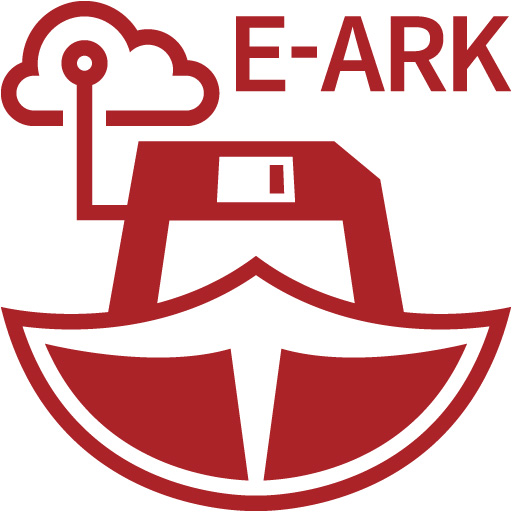 Currently, the skills required to deliver eArchiving effectively and at scale, are not widely available, nor is the topic widely understood among managers and decision makers. The effect of this is to create extremely high barriers to entry. Activity 4 aims to provide technical support for the user community as a whole and to improve the adoption of eArchiving DSI Building Block tools and standards. This will be accomplished by developing high-quality tailored training focused on both on generic long-term preservation and digital archiving skills, and on the specific tools and standards which were developed within the E-ARK project, and further developed within E-ARK CEF.
Currently, the skills required to deliver eArchiving effectively and at scale, are not widely available, nor is the topic widely understood among managers and decision makers. The effect of this is to create extremely high barriers to entry. Activity 4 aims to provide technical support for the user community as a whole and to improve the adoption of eArchiving DSI Building Block tools and standards. This will be accomplished by developing high-quality tailored training focused on both on generic long-term preservation and digital archiving skills, and on the specific tools and standards which were developed within the E-ARK project, and further developed within E-ARK CEF.
In this way, we will promote the uptake of eArchiving for current and prospective users, overcome barriers to entry, improve adoption rates, and assist in meeting the development needs of individuals and organisations engaged in eArchiving and intending to include or enhance eArchiving DSI services in their own services or products.
Activity 4 recognises that it is impossible to develop effective training material in isolation. It is key to the success of the activity that the target communities are not merely offered a finished set of training materials, but that they are involved in identifying the training needs, and contribute to the training content. Activity 4 will, therefore, collaborate closely with stakeholder communities through multiplier organisations such as the European Archives Group and the DLM Forum, as well as working closely with the SMO and DG CNECT.
In designing training for supporting eArchiving DSI Building Block specifications and tools, Activity 4 depends not only on the original outputs of the E-ARK project, but also on any extensions, and modifications arising from E-ARK CEF Activities A2 and A3. The successful deployment of training will also depend on harmonising with the user engagement and outreach work taking place in Activity A5. The task breakdown within Activity 4, is reflected in the milestones:
Analysis, Content, Platforms, Monitoring and Delivery so that success can be measured, and pathways to improvement opened, and finally, provide a first iteration of the core training offering.
Training activities within E-ARK CEF are organised around five key tasks:
A4.1 Training Needs Analysis In order to ensure that the training developed within E-ARK CEF is appropriate for our target communities, and meets their actual needs, a full training needs assessment will be carried out. We will work with the archiving community through the European Archives Group (EAG), and the membership of the DLM Forum. Our purpose will be to ascertain the current levels of skills within existing staff, to identify skills and knowledge gaps within organisations across the sector, decide which new skills are required, together with priorities for addressing skills shortages, and set out a road map for addressing gaps. This will be summarised in a training needs analysis report.
View the Activity 4 Training Needs Analysis Report
A4.2 Training Content
Based on the conclusions of the training needs analysis, training material (content) will be developed both within the E-ARK CEF consortium and, where necessary or appropriate, commissioned externally. While it is likely to include involving E-ARK tools and standards developers in developing support material, it will almost certainly involve on-boarding a larger community of developers, to reflect the wider base of the CEF eArchiving DSI community.
A4.3 Training Platforms
Having drawn together targeted training material, appropriate training platforms will be developed. Some aspects of this will involve working closely with the CEF SMO, who have considerable experience in developing briefing material and have responsibility for ensuring a consistent look and feel across the CEF building blocks. Without pre-judging the outcome of the training needs analysis, it is anticipated that training will be required in different modes, including face-to-face and online, short form and long form, briefing material (for decision makers), intermediate material, as well as very detailed practitioner support material.
A4.4 Training Evaluation
Appropriate mechanisms will be developed to evaluate training effectiveness. This will involve not only satisfaction and participant reaction, but knowledge acquisition, behavioural application, and measurable business improvement.
A4.5 Training Delivery
By the end of the project, it is expected that training material will be available to support all the main areas of the eArchiving DSI.
